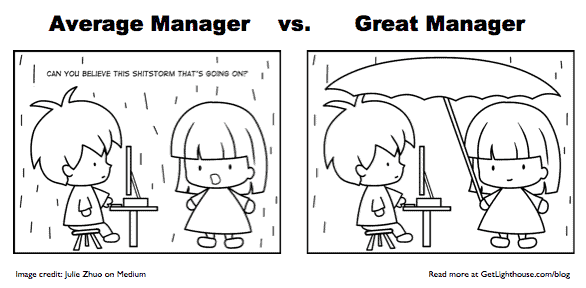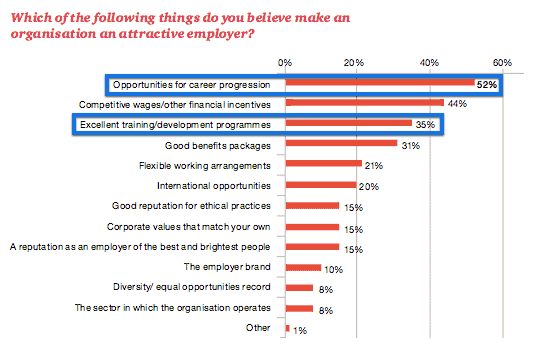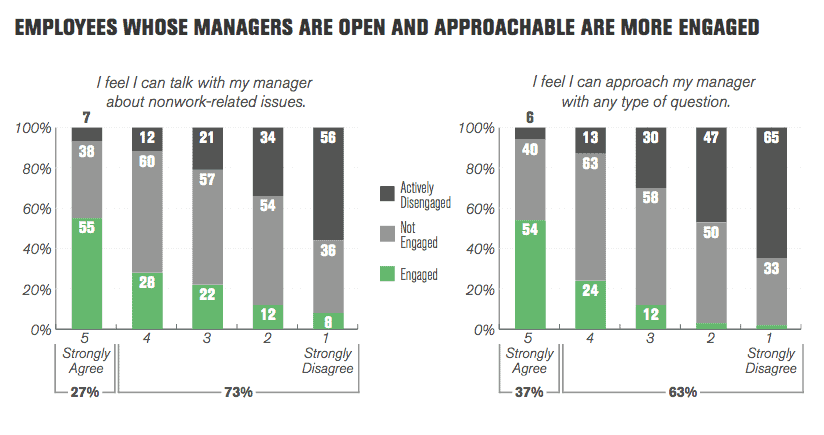When you start managing a new team, there's a lot of uncertainty:
- What do they think of you?
- Will everyone get along?
- How was their last manager?
- And are they a talented team?
Starting anything new is always hard, and when you involve multiple other people, personalities, and habits, it ups the difficulty level significantly.
As a manager, you need a strong relationship with your team, which starts with what you do on day 1. There are many ways to make sure you start leading a new team on the right foot, and the good news is that we prepared 6 questions to ask when joining a new team that will help you start the best way possible.

6 Key Questions to Ask your New Team
As soon as you start leading a new team, one of the first things you should do is start having one on ones with them. It gives you a consistent, private, and candid line of communication with each team member.
Specifically when you're starting out building your relationship with each person, these questions can spark priceless conversations that are perfectly suited for your one on one meetings.
Here are good questions to ask when joining a new team (click each of the questions below to learn more about the topic):
- 1) What are your favorite things to work on? What do you feel are your strengths?
- 2) What have your past managers done that you'd like me to also do or not do?
- 3) What are your career goals and where did your last manager leave off with them?
- 4) How do you like to receive feedback? What works best for you?
- 5) How do you like to receive praise or recognition?
- 6) What's something you do regularly outside of work that's really important to you?
- + Further reading at the end

1) "What are your favorite things to work on? What do you feel are your strengths?"
Especially on a large team, you'll be surprised how often what one person hates doing, another person will love.
By getting to know the work that excites each of your team members most, you can make it much more likely people get to work on things they enjoy at least part of the time. You can also then avoid the dreaded situation where you assign work to one person who hates it and another person wishes they could have that task.
More importantly, you're tapping into research that shows clearly that the teams that perform the best lean on the strengths of their teams:
- When Deloitte reported overhauling their management approach in Harvard Business Review in April 2015, they found:
"Three items correlated best with high performance for a team:
- "My coworkers are committed to doing quality work,”
- "The mission of our company inspires me,” and
- "I have the chance to use my strengths every day.”
...Of these, the third was the most powerful across the organization."
- Meanwhile, Gallup's State of the American Manager, had similar findings:

The sooner you find out your team's strengths and work they enjoy, the sooner you can start maximizing their potential and that of your entire team.
When you're starting out managing a new team, the easiest way to discover those strengths and work interests is to make time to ask. When you do, take note so you remember later, and ask some follow up questions to deeply understand what they enjoy.

2) "What have your past managers done that you'd like me to also do, or not do?"
This question will instantly give you credibility with your team and shows you care. Whether their last manager was saint or devil, they'll provide valuable insight for you.
If the last manager was great, they'll give you insight into what they appreciated most, short-cutting finding some of the most effective ways of leading a new team. Meanwhile, if the last manager was poor, you reset their expectations and give them reason for optimism.
As one manager told me recently when he asked this question of his team:
"When I started one on ones with my team, I asked them what they liked that past managers had done. They smiled and told me no manager had ever asked them anything like that."
The best thing you can do when starting managing a new team is to get their buy in and trust. From there, the promises you keep, and the things you deliver on for them will help keep your team bought in to you as their leader.

Asking what their past managers have done well or poorly is a great way to start building a great foundation for working with them.
It also helps you understand what makes them tick. Learning things that were influential in their past helps you know what to give them more of, and just as important, understand what to avoid, or that will upset them. The next few questions help you further understand them along these lines.
Want to start building great, productive relationships with your new team? Then sign up for a free trial of Lighthouse here and build the right habits to lead & motivate your people from day 1, including over 100 great questions like these.
Further reading:
It can also help to learn more about what makes a great (and not so great) manager, especially if you're a new manager. Learn more with these posts:
- 4 Types of Managers Employees Love to Work for (and Why)
- What makes a bad manager (Don't do these things!)

3) "What are your career goals and where did your last manager leave off with them?"
One of the biggest challenges companies face when they do re-orgs or have management changes is the subsequent morale drop that hits most teams.
Morale is damaged for a variety of reasons including the fear and uncertainty of change, no longer working with people they liked, and having to start over on the relationship with their manager.
A key part of this relationship with their manager is their career development. Your manager is your biggest advocate at promotion time and the main coach to help you get there. Too often, when you change you managers, you have to start over on your career progress.
This is especially a key factor for retaining your young and rising stars in your company. PwC's study of what attracts Millennials to new jobs found it was a top benefit:

Both Deloitte and Gallup show that a lack of opportunity for growth is one of the main factors that lead Millennials to decide to change jobs. In fact, Deloitte's study of Millennials showed that two-in-three Millennials planned to leave their job by 2020:

Like losing all your progress in a video game, it's very frustrating and demoralizing to have to start over. Rather than do so, changing managers can cause good employees to decide to look for another job that will instantly give them that new responsibility or title they crave.
Pick up where they left off.
When you start leading a new team, asking about their goals and learning what progress they have already made with their last manager can go a long way towards minimizing any negative feelings.
In the 1960s, Texas Instruments was looking to improve morale. They took the research of psychology professor Frederick Herzberg and attempted to apply it to their company. What they found was that the key to high morale and performance was a rather simple set of activities:
"For most individuals, the greatest satisfaction and the strongest motivation are derived from achievement, responsibility, growth, advancement, work itself, and earned recognition."
Later, they went on to find that the absence of those motivators had a dramatic impact:
"...the removal of opportunity for meaningful achievement sensitizes the individual to his environment, and his perception of maintenance factors becomes colored by a readiness to find fault."
This is why no amount of perks (one of the key types of "maintenance factors") will ever keep your employees retained on their own.

When growth and achievement are interrupted by reorganizations or management doesn't care about them, employee attitudes will shift to a negative mindset; they will then start looking for flaws and reasons to be unhappy at your company.
Not surprisingly, that can start a death spiral where workers reinforce this attitude with one another until they begin leaving in waves.
Given all the uncertainty and concern when you start leading a new team, picking up the conversation on their growth and goals can ensure any loss of momentum on their key motivators is as short-lived as possible.
Want to keep track of your team's goals from one place? Download our free 1:1 meeting template below.

For more on helping your team achieve their goals, read:
- How to support team members to achieve goals.
- Career Development Plans: What Managers Struggle with Most.
- How do you help your team grow professionally.

4) "How do you like to receive feedback? What works best for you?”
Lara Hogan, author of Resilient Management, and former engineering leader at tech companies like Dyn, Etsy, and Kickstarter uses a collection of super smart 1-on-1 questions when she starts managing a new team.
She believes that asking the right kind of questions in the beginning is key because it helps you gather valuable data that you can use later to do things like:
- Gather and offer feedback more effectively
- Recognize them (see the next question below)
- And better support them
Hogan uses variations of this particular question to find out the most effective way to offer someone feedback later on down the road. That includes finding out what medium they prefer to receive the feedback in (chat, email, in-person) as well as the timing they prefer (i.e.- as it happens, or in 1-on-1s).
As she puts it:
"Few things are harder than trying to give someone feedback; doing it in a way that you think they'll be most able to hear it is invaluable.”
By asking this question before you have a bunch of feedback to give them, you're able to dig up clues about how you can present your feedback in a way that they'll be most receptive to when the time comes.
If you're looking for more ideas on how to give feedback in a variety of ways, you can learn more here:
- How to Give Feedback to Team Members
- How to Give Constructive Feedback to Motivate and Improve Your Team

5) "How do you like to receive praise or recognition?”
Another great question inspired by Hogan is to learn how to praise team members and give great recognition.
The simple act of appreciating your team members, whether through a few words of praise at the end of a tough week, or recognition for their critical role in a recent project, can make a big difference in motivating employees.
Praise is critical to effective leadership. Gallup found that offering regular praise has a major impact on both productivity and retention:
"[Those answering "strongly agree to] "In the last seven days, I have received recognition or praise for doing good work” is responsible for a 10% to 20% difference in revenue and productivity.
Employees who report that they're not adequately recognized at work are three times more likely to say they'll quit in the next year.”
This should not be surprising to you. Think about your own career: I'm sure you've felt both the glow of appreciation when others recognized your hard work, and the feeling of disappointment when no one noticed your efforts. Remember that so you never take your team members for granted.

Learn how each person on your team prefers to receive recognition
Knowing to give praise to your team is not enough, if you are managing a new team. In fact, it can totally backfire if you're not careful; some people hate to be recognized in public, while others love it.
The last thing you want to do is make someone feel uncomfortable at the moment you want them to be proud and happy. I learned this the hard way when I tried to recognize a coworker in a group meeting once.
As I spoke about how awesome they were and what their key contribution was, I saw them fill with dread and shrink in their chair. It had the opposite of the desired and expected effect. From that point forward, I realized I should find out what people prefer before trying to give especially public recognition.
By asking "How do you like to receive praise?", you can avoid a similar awkward moment, and make sure all of your praise lands as you hoped. Lara Hogan shares how she did just that with one team member when she wrote:
"For a big-deal promotion, I once gave an introverted direct report a handwritten congratulatory note and a loaf of banana bread—his favorite baked good—which he chose to share with his teammates. His celebration, his terms.”
A simple question can make all the difference in how your team feels about you as their leader. Asking how they like to receive praise is a fantastic way to make sure you can effectively use one of the easiest, and least expensive motivators.
To learn more about giving effective praise and creative ways to recognize your team read on here:
- The Ultimate Workplace Praise Guide: How to be More Positive at Work and Give More Praise to Your Team
- 3 Simple Secrets to Motivating Employees You Can Do Today (See point #1)

6) "What's something you do regularly outside of work that's really important to you?”
Rapport is foundational to your relationship with your team members, especially when you are managing a new team. It makes it easier to communicate, including giving and receiving feedback, as well as opening up about issues. Think about the difference you feel when a trusted friend or family member tells you something you need to hear versus a stranger.
This is so much more than a touchy-feely topic. According to Gallup's "State of the American Manager” report, building rapport with your employees is one of the most effective ways to improve engagement:

This question, however, isn't just about building rapport. You could ask a variety of questions to get to know them and build trust.
There's another reason you should ask about their favorite or most important activities outside work: avoiding burnout.
Balancing work and well-being is difficult, but it's not just an individual effort. You can help your team come into work happier, more engaged, and help them avoid burnout. And it all comes down to asking the right question now so you can avoid those potential issues in the future.

Maintain your team's engagement with the rhythm concept
Lumi Labs co-founder and former Yahoo! CEO Marissa Mayer has a theory about burnout: it's not about work-life balance, it's about resentment:
"Avoiding burnout isn't about getting three square meals or eight hours of sleep. It's not even necessarily about getting time at home.”
Instead, she says its a matter of finding your rhythm:
"Your rhythm is what matters to you so much that when you miss it you're resentful of your work.
...If Joe needs to pick up his kids every day at 6 p.m., don't make him late...Think about the moment a child sees a parent walk in late to a recital...Don't be the cause of that.”
While it may be easy to imagine parenting items like family dinner, coaching their child's team, or dropping their kid off at school in the morning, everyone has a rhythm. Mayer has also shared in interviews other "rhythm" events such as a recent college grad having a monthly potluck with friends, or never missing a club or sports team they play on.
Treat everyone's rhythm with equal respect, and your team will respect you, too. Ask this question to identify what those things are that need to be protected to stave off burnout and keep them happy to come into work each day.
Keep in mind, especially with the rise of remote work, this may become a bit of a challenge juggling the timing of everyone's rhythm. However, by learning them early, and making the effort to accommodate them as best you can, you show your team you really care.
Further reading:
Learn more about building a strong foundation of trust and rapport with your team here:
- Why You Should Build Rapport with Everyone You Manage
- 82 Ways How to Build Rapport With Anyone You Work With
- How to Build Rapport with Your Remote Team Members

A few questions make all the difference.
Starting out managing a new team is never easy. However, if you use these 6 questions, you can build trust, boost morale, and show your new team you care about what's most important to them.
Best of all, you'll get a better idea of what kind of situation your team was in before you arrived. This way, you can either help keep the well-oiled machine going, or work hard to rapidly improve things to prevent losing good people as you start.
Further reading
At Lighthouse, we have countless resources for helping you becoming a better manager and managing a new team, from getting started with regular 1 on 1s to managing remote teams.
Here are some additional resources for getting started right with your new team:
Start having regular 1 on 1s:
1 on 1s are foundational to a healthy, ongoing relationship with your team members. It helps you fix problems, keep them motivated, and a lot more, which is why it's so critical to master them. Here's how to do that:
- What to Expect In Your First One on One Meetings with an Employee.
- How to be a manager for the first-time.
- 10 Best Books for New Managers on Leadership.
- And catch this episode of the Creating High Performing Teams Podcast - The Most Important Skills for Managers to Master:
💡Lead Smarter, Not Harder - Join Our Bite-Sized Leadership Courses!💡 Dreaming of leadership success, but can’t find the time? We’ve got you covered. Lighthouse offers compact, impactful courses to help you conquer your toughest leadership challenges. Upgrade your skills and master essential management strategies with us. Eager to start your journey? Learn more here.

How do you interact with new team members?
When interacting with new team members, you want to focus on a few key things to make them feel welcome:
1) Schedule a 1 on 1 as soon as you can to open communication.
2) Build a foundation of rapport & trust by getting to know them.
3) Learn about what motivates and de-motivates them by asking how they like to receive feedback and praise.
How do you make a good impression as a new manager?
You can make a good impression as a new manager by showing care and interest in your team:
1) Take time to get to know them
2) Get feedback on what they liked and didn't about their last manager
3) Schedule regular 1:1s with them to open up communication
4) Tell them a bit about you and what to expect
5) Ask good questions and listen to what they have to say about their careers, how to give them feedback and praise, and more...
What should a new manager do first?
A new manager should first listen and learn from their team. Ask:
1) How does your company and team like to operate?
2) What did your team like and not like about their last manager?
3) What motivates and demotivates each team member?
4) What are your career goals so I can help you grow?
5) How do you like to receive feedback and praise?
6) What's something you do outside work that's really important to you?
And more...
What do you say to your new team as a manager?
Managing a new team is less about what you say and more about listening, and you listen best by asking great questions. Such as:
- What are your favorite things to work on?
- How do you like to receive feedback?
- What are your career goals?
- What did you like that your previous manager did? What didn’t you like?
The more you know, the more effectively you can manage your new team. Learn more about managing a new team: questions you need to ask to start managing a new team.
How do you effectively manage a new team?
To effectively manage a new team you need to better understand each of your team member's career goals, their strengths and weaknesses, preferences, and interests.
The more you know about each member of your team, the better you can lead them. And the best way to do that is to start having regular 1 on 1s. Check out our free 1 on 1 meeting template for managers.
How do you get to know your team as a new manager?
Getting to know your team as a new manager comes down to two things:
- Getting to know them personally by building rapport, and
- Getting to know them as an employee, by learning about their strengths, habits, preferences, and work ethic in general.
In both cases, the best way to do that is to have regular 1-on-1s. During your 1-on-1s, you can build rapport, gather and give feedback, ask them about their career goals, and get them to open up about any issues they may be having.




